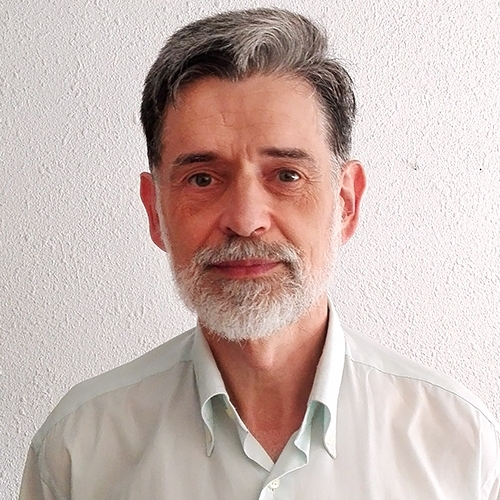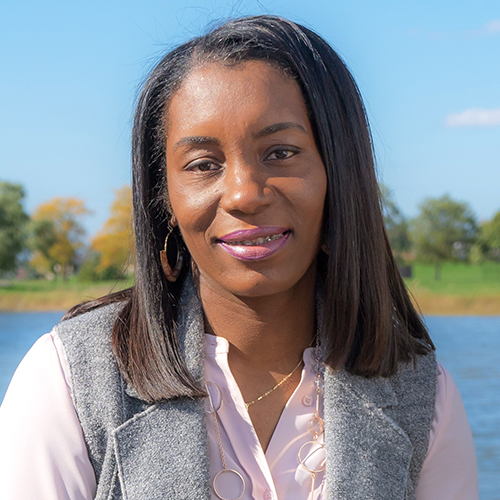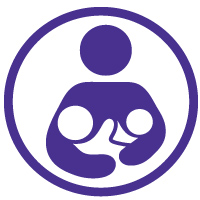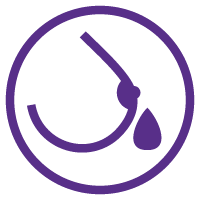 Lactation & Breastfeeding Online Course(s) & Continuing Education
Lactation & Breastfeeding Online Course(s) & Continuing Education
Access the latest clinical skills and research for Lactation & Breastfeeding for professional training. These Lactation & Breastfeeding online courses provide practice-changing skills and valuable perspectives from leading global experts. This Lactation & Breastfeeding education has been accredited for a variety of CEUs / CERPs and can be accessed on-demand, at your own pace.
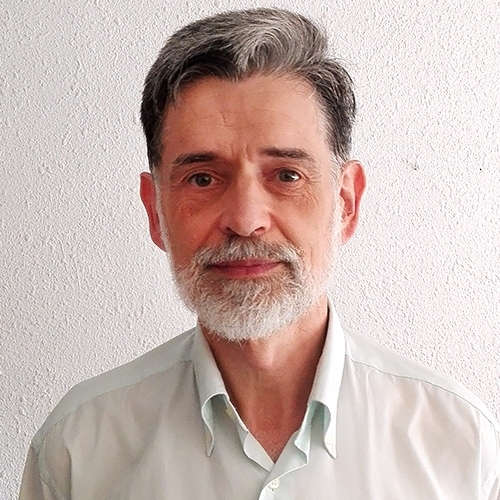

Carlos González was born in Zaragoza, Spain, in 1960. He is married and is the father of three children. In 1983 he graduated in medicine at the Autonomous University of Barcelona, and between 1984 and 1987 he studied pediatrics at the Hospital of Sant Joan de Déu in that city.
He is founder and president of ACPAM (Catalan Association for Breastfeeding) since 1991. Since this association he has directed and taught in more than 100 courses on breastfeeding for health professionals.
He is the author of several books, including My child won’t eat, Kiss me!, and Breastfeeding made easy.
He has lectured for professionals or general public in Germany, Andorra, Argentina, Austria, Bolivia,
Chile, Colombia, Costa Rica, El Salvador, Spain, United States, France, Greece, Guatemala, Honduras, Ireland, Israel, Italy, Luxembourg, Mexico, Panama, Paraguay, Peru, Poland, United Kingdom, Dominican Republic, Russia, Uruguay and Venezuela.
Since 1994, he has been a regular contributor to Ser Padres magazine , where he attends a nursing and child feeding office. He has also collaborated with other publications, such as the magazine Tu Baby, Mente Sana, Lecturas, the disappeared Solaica and the newspaper in Catalan Ara.
Inappropriate use of growth charts can cause familiar anxiety, unnecessary supplementation, early weaning, unnecessary testing and force-feeding. With half of the population below the mean, at least a 3% of the average weight of people are (and have to be) under the third percentile. Percentile lines are mathematical constructions, and do not represent the actual growth patterns of individual babies.

View Details / Enroll
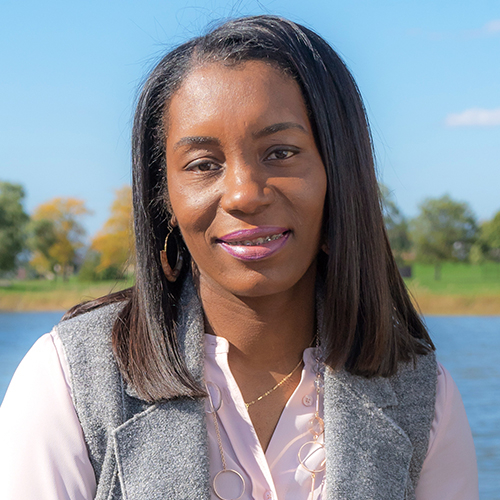

Stacy Davis is the Health Equity and Community Partnerships Manager for the National Women, Infant and Children (WIC) Association. Inspired by her personal and professional experiences, Stacy has focused her efforts on addressing health equities in Maternal Child Health, locally, nationally and internationally, especially as it pertains to black and brown families.
As the former executive director of the National Association of Professional and Peer Lactation Supporters of Color, Stacy established the organization as a brand and leader in the field- addressing racial inequity in lactation support and education, acting as expert panelist and collaborator with other leading organizations, and holding privileged organizations accountable and responsible for the health and wellbeing of communities of color. Additionally, she participated in the growth and expansion of equitable access to Pathway 2 lactation training programs at Historically Black Colleges and Universities, such as Johnson C. Smith and North Carolina A&T Universities. She co-developed and hosted a unique event of its kind- The Amazing R.A.C.E.- a safe space retreat for Maternal Child Health professionals and supporters.
Stacy is a graduate of Western Michigan University where she obtained her master’s degree in Public Health. She has received numerous honors including, but not limited a member of the Center for Social Inclusion’s First Food Racial Equity Cohort, IBCLE’s Spotlight, and the AHEAD in WIC Health Equity Champion. Stacy Davis is a United States Lactation Consultant Association Board of Director.
New parents do not anticipate a challenging journey when it comes breast-/chest-feeding. When things do not go as planned, parents are therefore often consumed by fear and uncertainty and look to professionals for support. Being the person guiding the steps of a new, lactating parent creates a challenge. How do you design a care plan which address the concerns of the parent(s) but also allows the parent(s) to act as a member of the team and the expert on what is best for them and their family in their current life circumstances? How do you foster self-efficacy, and self-empowerment in your clients to ensure that your plan of care is feasible and within the capacity of the parent(s)? Learn more about the importance of meeting parents where they are at to create a care plan which is mutual, feasible, and sustainable. This presentation will be a 60-minute Q&A session so bring your questions about how to approach communication and counselling to create a plan of care that really works for your clients and helps them to meet or exceed their infant feeding goals.
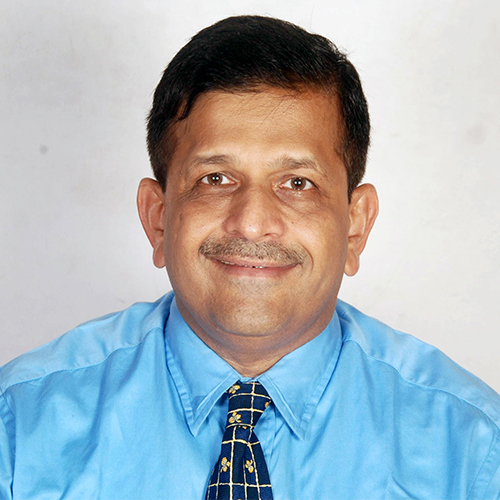
Healthy Babies: What We Can Learn from Infant Growth Charts

Dr. Gangal is a Pediatrician, Breastfeeding Trainer & Advocate in Mumbai for 30 years. He has been Mother Support-Training Coordinator of BPNI Maharashtra (1995), Co-Coordinator of Mother Support Working Group of WABA (2003) & Lactation Consultant (2009). He was chairman of Global Collaboration Committee of ILCA (2018).
He was trained by Dr. Felicity Savage. He established the first Mother Support Group in India (1995) and played a key role in training 500 Traditional Massage Women, Breast crawl rejuvenation, training Government Health Workers in 7 Indian States with an innovative module with UNICEF and organizing IBLCE exam for the first time in India (2009). He contributed to LLLI publication ‘Hirkani’s Daughters’, facilitated Lactation Counselling in 85 Maternity Facilities, organizing 8 batches of Lactation Education to facilitate about 100 Lactation Consultants, the creation of the Android app ‘Shishuposhan,’ and played a major role in launching the website www.bpnimaharashtra.org.
Dr. Gangal has multiple publications & was a speaker at LLLI conferences in San Francisco and Chicago. He was honored with Dr. N. B. Kumta Award by BPNI Maharashtra, Lifetime Achievement Award by Mumbai Breastfeeding Promotion Committee & WABA Secretariat award. He spoke on Breast Crawl & WHO Growth Charts (2016) at GOLD Conferences.
Infancy is a period of rapid growth & development. Any adversity has a profound impact on physical, mental & psychological outcomes for entire life. Growth Charts are the meter of infant’s Nutrition-Health-Nurturing & reflect any adversity. Hence, tracking infant growth is important.
The World Health Organization (WHO) released new international growth standards in 2006 to monitor growth of children 0-59 months of age. All Health Care Providers should use these charts to complement Infant & Young Child Nutrition (IYCN) Counselling. Every growth chart has a story to tell. I found WHO growth charts to be accurate and extremely useful for knowing past events and use the information to promote optimal growth and development in future. Every contact with the child in general & especially immunization is an opportunity to discuss nutrition & development. The concepts of Severe Acute Malnutrition and Mild Acute Malnutrition (SAM-MAM) need to be understood.
The Infant feeding professionals should also understand science behind WHO Growth Charts and how to use this information for ideal IYCN Counselling. Prematurely born infants need different charts for monitoring growth during infancy & experts need to be aware about the current concepts & opinions of monitoring growth of Premature & Low Birth Weight infants. Impact of individual components of breastmilk on growth is the new science frontier.

View Details / Enroll
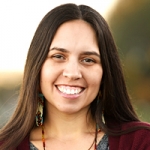
Historical Trauma, Racism and White Privilege: The Barriers to Breastfeeding Success

Camie Jae Goldhammer, MSW, LICSW, IBCLC, (Sisseton-Wahpeton) is a Clinical Social Worker and Lactation Consultant. Camie received her Master of Social Work degree from the University of Washington in 2006, specializing in Maternal Mood Disorders and the affects of complex/Intergenerational trauma on attachment, bonding and the parenting practices of Native families.
Camie is the founder and chair of the Native American Breastfeeding Coalition of Washington. She is also a founding mother and President-Elect of the National Association of Professional and Peer Lactation Supporters of Color. In 2013 she became Washington state's first Native American IBCLC. Camie is a consultant with CHEER and is also a part of the Center for Social Inclusion’s First Food Racial Equity Cohort. Recently she worked as a Campaign Director with MomsRising working to bring paid family and medical leave to Washington State which was signed into law in July 2017. She is now a member of the MomsRising breastfeeding team. She is a National leader on topics of racial equity and first food justice and recently launched the Indigenous Breastfeeding Counselor training.
Topic: Historical Trauma, Racism and White Privilege: The Barriers to Breastfeeding Success - [View Abstract]
Too often when discussing barriers to breastfeeding there tends to be a focus on education, poverty, and familial support. However, when we truly look at the causes of health disparities and inequities it is racism and discrimination that are at fault. For many of us, this can be a difficult realization and conversation to have. In this session, Ms. Goldhammer will discuss how Communities of Color are impacted by intergenerational trauma specifically when it comes to attachment and bonding as well as the role that racism and white privilege play in today’s modern day field of lactation. She will conclude with ways in which we can create meaningful impact and further advance racial equity in our field and most importantly in the communities we serve.

View Details / Enroll
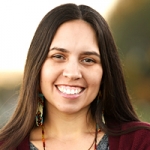
View Details / Enroll
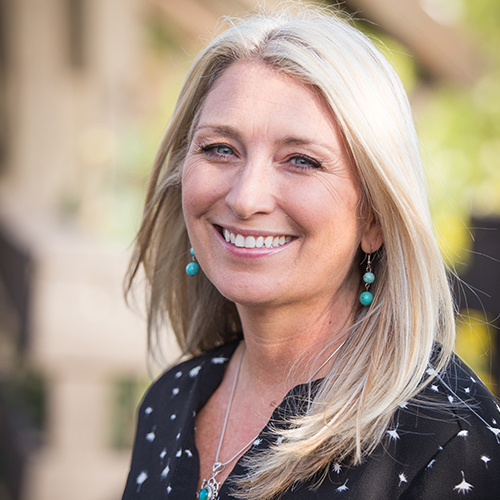
Hold the Phone! Diet Does Matter During Breastfeeding: Implication of Diet on Fatty Acid Composition and Other Nutrients

Laurel Wilson, IBCLC, CLE, CCCE, CLD is a TEDx and international speaker, author, pregnancy and lactation expert, and consultant. She served as the Executive Director of Lactation Programs for CAPPA, the Childbirth and Postpartum Professional Association for 16 years and now is on the Senior Advisor Board. She served on the Board of Directors for the United States Breastfeeding Committee from 2016-2019. She also is on the Advisory Board for InJoy Health. She owns MotherJourney, focusing on training perinatal professionals on integrative and holistic information regarding pregnancy, childbirth, and breastfeeding. She has her degree in Maternal Child Health: Lactation Consulting and is an internationally board certified lactation consultant. As the co-author of two books, The Attachment Pregnancy and The Greatest Pregnancy Ever, original Editor of the CAPPA Lactation Educator Manual, and contributing author to Round the Circle: Doulas Talk About Themselves, she loves to blend today’s recent scientific findings with the mind/body/spirit wisdom. Laurel has been joyfully married to her husband for nearly three decades and has two wonderful grown sons, whose difficult births led her on a path towards helping emerging families create positive experiences. She believes that the journey into parenthood is a life-changing rite of passage that should be deeply honored and celebrated.
Topic: Epigenetics and Breastfeeding: The Potential Longterm Impact of Breastmilk - [View Abstract]
Topic: Hold the Phone! Diet Does Matter During Breastfeeding: Implication of Diet on Fatty Acid Composition and Other Nutrients - [View Abstract]
Topic: Postpartum Mood Disorders, Breastfeeding and the Epigenetic Links from Past Into Future - [View Abstract]
Topic: Talk To Me: How Breastmilk Acts as a Communication and Gene Expression Tool Between Mother and Child - [View Abstract]
Topic: The Milk Sharing Conundrum - The Grey Area Between Scope and Need - [View Abstract]
Topic: The Placenta and Breastmilk-Unraveling the Mysterious World of the Intelligent Organs that Protect our Babies - [View Abstract]
Topic: Understanding Zika and Lyme and Breastfeeding - [View Abstract]
Topic: Unraveling the Mysteries of Human Milk: The Fascinating Role of Neohormones, Epigenetics, the Microbiome and More! - [View Abstract]
For more than a decade most lactation professions have been suggesting to families that diet matters very little in terms of breastmilk composition. We have told parents that they can essentially eat whatever they want, it does not matter to the bottom line. However, new studies imply that in fact, diet does matter in terms of the composition of fatty acids and essential nutrients available in milk that can potentially impact life long health. Studies also show that changes in diet can lead to gene methylation which impacts gene expression, as well changing the oligosaccharide profile which shapes the microbiome. This presentation takes you on a tour of some recent research finds to better understand how maternal diet (potentially prenatally through lactation) DOES play a role in breastmilk and how a parent’s diet can potentially influence a breastfeeding baby’s health.

View Details / Enroll
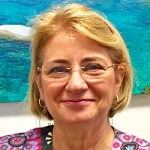
How B.E.S.T. (Basic Evaluation of Structural Tension) Relates to Breast©

Judy Terwilliger is a Clinical RN Therapist with Pediatric experience for over 30 years. As lead therapist, researcher and educator in her proprietary form of functional mobility therapy (Functional Bowen™), she works with allied health care providers in the resolve of hidden structural barrier challenges for infants and children. Her collaborative, integrative team care approach sees many successes. She is committed to equipping families with the tools necessary in support of breastfeeding and enabling parents to participate in the resolve of their children’s structural challenges. She is a member of the National Society of Pediatric Nurses and was a nominee in the 2013 Clinical Excellence in Practice Award. She has been a speaker at the Northern California Placer County Breastfeeding Coalition, Imperial Valley Breastfeeding Summit and presented at the 2016 California Breastfeeding Coalition. Her professional memberships include: ABM Network, International Pediatric Integrative Medicine Network, IATP, and Breastfeeding USA. Judy is a licensed continuing education provider for the National Certification Board for Therapeutic Massage & Bodywork, California Board of Registered Nurses, The California Physical Therapy Association, and the International Board of Lactation Consultant Examiners.
This lecture/course is intended to familiarize the medical and allied health community in the recognition of the often-overlooked muscle-related structural barriers to breastfeeding. It provides a discussion of clues to the predisposing factors of these barriers and explores their affect on infant "functional mobility" as it relates to the achievement of successful breastfeeding. It is intended to improve the clinician’s assessment skills as they work with the mother/infant dyad in resolving breastfeeding difficulties/dysfunctions by development of insight into these often hidden and profoundly destructive structural manifestations. Recognition of these barriers with an emphasis on self-help techniques and when/who to refer parents/caregivers to for help, together with how to best meet their teaching/training needs across cultural barriers, is discussed. The ultimate purpose is the achievement of insight to improve the clinician’s evaluation process, better enabling them to promote, enhance and even save the breastfeeding experience of the families served.

View Details / Enroll
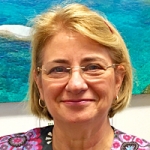
View Details / Enroll

How Breastfeeding and Food Allergies Intersect: What We Know and How We Can Help

Meghan McMillin holds a Master’s Degree in Human Nutrition from the University of Illinois at Chicago. She has been a Registered Dietitian Nutritionist (RDN) since 2013 and became an International Board Certified Lactation Consultant (IBCLC) in 2019.
Meghan spent 5 years working clinically in the NICU, pediatric floor and women’s units of a local hospital. In 2019, Meghan started her own private practice and consulting company, Mama & Sweet Pea Nutrition, with a focus on postpartum and infant care. The mama to two young kids with food allergies, helping other families manage food allergies, whether it’s while breastfeeding, during the introduction of solids, or later in childhood, is her passion.
Meghan is a member of the International Lactation Consultant Association and the United States Lactation Consultant Association. She enjoys sharing her knowledge through social media and public speaking. Meghan is the coauthor of the eBook What To Eat When Your Baby Can’t Tolerate Milk, Soy, or Egg Protein; Nutrition guidance for avoiding milk, soy, and/or eggs while lactating.
Meghan has presented both nationally and internationally including for GOLD learning, the National WIC Association and the Academy of Nutrition and Dietetics. In 2020, Meghan was awarded the Emerging Professional in Women's Health Award from the Women's Health Dietetic Practice Group of the Academy of Nutrition and Dietetics.
Topic: Popular Diet Trends: Impact and Safety During Lactation - [View Abstract]
Though the overall risk of the development of food allergies in infants remains very low, prevalence has been increasing. With that increase, we are also seeing more concerns for food allergies in the exclusively breast/chest fed infant. This presentation aims to educate on the different types of food allergies (IgE mediated vs non- IgE mediated) and their symptoms commonly seen in a breast/chest fed infant. We’ll review the current feeding recommendations for an infant that presents with food allergies including maternal elimination diets. This presentation will also explore the role of the lactation consultant in managing food allergies and supporting our families that face this challenging situation.

View Details / Enroll


Duncan Fisher promotes and develops support for parents to advance child health and development. In the last year he has been working with breastfeeding researchers across the world and with the World Alliance for Breastfeeding Action to advance the idea of "breastfeeding as teamwork", following striking findings from research of the high gains from engaging with fathers and other family members. In UK he co-founded the Fatherhood Institute and for three years he served on the Board of the Government’s gender equality body, the Equal Opportunities Commission. He manages the website, FamilyIncluded.com, where all recent research on breastfeeding and fathers/families is reported. He initiated and currently manages a website for Cambridge and Princeton Universities reporting research on child welfare and development, ChildandFamilyBlog.com. He was awarded an OBE by the Queen in 2008 for his “services to children”. Duncan lives in Wales and divides his time between family work and work to support sustainable economic development in his home country.
Breastfeeding programmes that engage fathers are more effective than ones that only involve mothers and professionals. This accords with research that has shown that family is the main influence on breastfeeding. The way that families influence breastfeeding is diverse, depending on the make-up of the family, local culture and location (e.g. urban/rural). The influence of fathers is not necessarily intentional, but what fathers think and do influences the situation in almost every situation. In this presentation I will describe the principles of success that have been learned from programmes with published evaluations. These principles can be summed up in the phrase recently adopted by the World Alliance for Breastfeeding Action, "breastfeeding is teamwork".

View Details / Enroll


Anna has been working as a midwife since 2009. From the very beginning of her studies she has been fascinated with breastfeeding. During her studies for her Bachelor's and Master's degrees in Midwifery, her main area of interest was promotion and support for breastfeeding among women. Anna's interest in breastfeeding turned into a passion that led her to pursue the Polish Certification of Lactation Consultant and she is working toward certification as an IBCLC. She opened a private practice and a support group for local women in Krakow (cracko). Anna’s Interest and passion for lactation and breastfeeding have deepened during her current PhD studies. She is a PhD candidate in 2018 at University Medical College and is the coordinator of the Krakow Human Milk Bank.
Her scientific area of expertise: change in milk composition (macronutrients), human microbiota during pregnancy, lactation as well as tandem breastfeeding. Her research is carried out in the Department of Obstetrics and Perinatology. Anna is the author of many lectures and workshops for students of midwifery and medicine in area of breastfeeding, lactation and the variation of composition of human milk. Since 2016 she has been popularizing the science of human lactation in Poland and she is always finding new ways to promote and support breastfeeding women. In her spare time she practices meditation, yin yoga and is learning how to dance rock and roll.
Topic: Rusty Pipe Syndrome: A Case Report From Poland - [View Abstract]
Although Human Milk Banks are already more than 100 years in the world in Poland they are pretty new and young institution. History of breast milk sharing is well known, in times of war in Polish women sell milk on food market. Today we have a professional Human Milk Banks with international standards and very engaged in scientific work. Human Milk Banks working as non-profit institution, but from this year 2017 our government will pay and support all hospitals in Poland which feed premature babies and full time newborns - human milk (biological mother or from Human Milk Bank). This presentation will show the history of our banks, inception steps, functioning, obtaining Donors Mothers, cooperation with non-governmental organizations and the national health service in Poland.
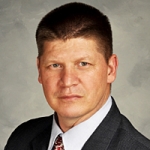
Human Milk Synthesis: Just When You Thought You Knew

Tom Johnston is unique as a midwife and lactation consultant and the father of eight breastfed children. Recently retired after 27 years in the US Army, he is now an Assistant Professor of Nursing at Methodist University where he teaches, among other things, Maternal-Child Nursing and Nutrition. You may have heard him at a number of conferences at the national level, to include the Association of Woman’s Health and Neonatal Nurses (AWHONN), the International Lactation Consultant’s Association (ILCA), or perhaps at dozens of other conferences across the country. In his written work he routinely addresses fatherhood and the role of the father in the breastfeeding relationship and has authored a chapter on the role of the father in breastfeeding for “Breastfeeding in Combat Boots: A survival guide to breastfeeding in the military”.
Topic: Human Milk Synthesis: Just When You Thought You Knew - [View Abstract]
Topic: New Insights Into the Maternal Child Microbiome - [View Abstract]
Topic: Promoting Provider Self-Efficacy in Breastfeeding Support - [View Abstract]
Topic: Still Swimming Upstream: Breastfeeding in a Formula Feeding World - [View Abstract]
Topic: The Making of Human Milk: A Clinical Update - [View Abstract]
Topic: The Maternal-Child Microbiome or: The “Oro-boobular axis” - [View Abstract]
Topic: The Maternal-Child Microbiome or: The “Oro-boobular axis” - [View Abstract]
Topic: The Perinatal Microbiome - [View Abstract]
Topic: Using Evidence to Develop Clinical Lactation Skills - [View Abstract]
"I didn't make enough milk!" We hear it on a regular basis from heartbroken new mothers. In fact, this is the number one factor contributing to breastfeeding failure after two weeks of age is a perception of inadequate milk production. This phenomenon of sudden onset lactation failure is widely accepted as a common occurrence among breastfeeding mothers. This topic has been the subject of a number of quality studies that have yielded a conflicting mix of responses from primary health care providers and lactation consultants alike. This discussion will attempt to shed light on the very different concepts of "Milk Production" vs. "Milk Synthesis" and will demonstrate how confusion between those two concepts have clouded the study of milk production, promote the fallacy of "insufficient milk production syndrome", and contribute to the failure of breastfeeding. This presentation will also attempt to provide a preliminary course of action to begin anew in milk production research and perhaps even provide a framework for helping the new mothers facing the milk supply challenge.



